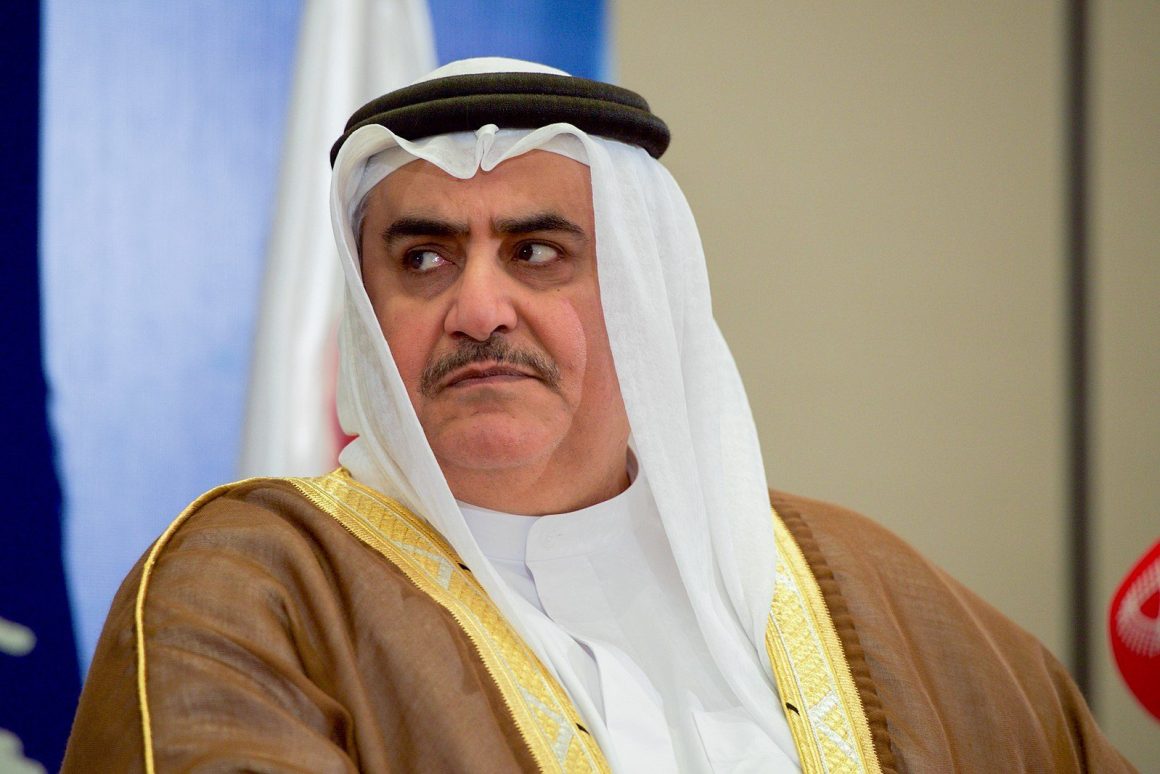Twitter users have responded to the Manama official, telling him that his attempts of impeding the GCC reconciliation is a waste of time.
Bahrain’s former Foreign Minister and current adviser to King Hamad bin Isa Al Khalifa, took aim at Qatar in a series of tweets on Friday, accusing Doha of “obstructing the work of the Gulf Cooperation Council [GCC]”.
“Although the GCC has made many important steps in favour of joint Gulf action, it faced many challenges and obstacles that threatened it and harmed the historical fraternal relations between its countries,” said Khalid bin Ahmed Al Khalifa.
Read also: Analysts slam ‘illogical’ Bahrain violations as anti-Qatar provocations continue
This referred to the 41st GCC Summit in Saudi Arabia that saw the historical signing of the Al Ula Declaration on January 5th, ending the three-year long Gulf crisis and lifting the illegal embargo on Qatar. Bahrain was among the countries to impose the blockade on Qatar.
However, both in the weeks leading up to and after the reconciliation, Bahrain has been seen to show the least enthusiasm.
Unlike Saudi Arabia, the United Arab Emirates and Egypt who quickly welcomed progress to end the crisis, the tiny Gulf kingdom delayed its statement for weeks.
Since then, Bahrain has also continued in apparent attempts to provoke Qatar. This includes repeated breaching of territorial waters and airspace, as well as seizing 130 properties reportedly belonging to relatives of Sheikh Tamim bin Hamad Al Thani.
Past territorial disputes
In the same thread on Twitter, Al Khalifa used past territorial disputes between Qatar and Bahrain to back his claims, starting with the Fasht Al-Dibal island.
“In 1986, the Council faced a major challenge following the Qatari attack on Fasht Al-Dibal, in flagrant violation of a joint Gulf military agreement, which required Saudi Arabia’s swift move to contain and calm the situation by withdrawing the aggressive Qatari forces from Fesht Al-Dibal,” he said.
Bahrain and Qatar were on the verge of war in 1986 over disputed territories, including the Zubura, and the Janan Islands as well as Fasht Al-Dibal.
Conflicts over the said areas began as early as 1937, when an intervention by British colonialists settled a dispute by demarcating the borders. At the time, the territories were said to be under ‘Britain’s protection’.
Despite Saudi and British attempts to calm tensions, the dispute remained.
The two sides were advised to raise the feud at the International Court of Justice in The Hague in 1990, which requested evidence from Qatar and Bahrain to rule on ownership of the territories.
تزييف واضح للوقائع وتحريف للحقائق وكذب متواصل من شخص بلا مبادئ ونظام فاسد وقمعي .. وماذا عن مؤامرتكم الانقلابية في ٩٦ بل اين #حصار_قطر الجائر من سردك هذا الحصار الذي قصم منظومة التعاون وكشفكم على حقيقتكم ! https://t.co/90QMmGKC5l
— فهد العمادي (@fahedalemadi) February 12, 2021
The case lasted for a decade and ended in 2001 when the court granted Qatar sovereignty over Zubara and Jinan Islands, Haddad Janan and Fasht Al Dibal. Bahrain was given sovereignty over the Hawar islands and Qit’at Jarada.
The public respond
Social media users quickly responded to the Bahraini official’s tweets, which was described as a “failed attempt” to disrupt the GCC reconciliation and yet another provocative move by Bahrain to portray Qatar as the party standing in the way of regional stability.
“Obvious distortion of facts and lies by a person without principles and a corrupt and oppressive regime … what about your coup plot in 1996 or the blockade?” Qatari journalist Fahad Al Emadi responded on Twitter.
Tensions continue
Although Bahrain itself has signed the Al Ula Declaration, it has not yet restored its diplomatic ties with Doha. In recent weeks, several statements by Bahraini officials have accused Qatar of showing an alleged lack of willingness to hold talks.
In a recent statement by Bahrain’s Minister of Foreign Affairs Abdullatif Al Zayani, the official said Qatar has not responded to an invitation sent in January by Manama to discuss “outstanding issues”.
He also said that Bahrain sent a letter to the GCC’s member states, in which Manama complained of Doha’s lack of response.
“The letter made it clear that Qatar did not respond to the invitation extended by the Ministry of Foreign Affairs, and that it was confirmed that Bahrain would await a response to the invitation for a bilateral meeting,” Al Zayani said.
However, analysts say Qatar’s unresponsiveness to the “illogical” invitation is far from surprising considering the ongoing provocations from Manama.
“It clearly doesn’t seem to make sense to Qatari officials that, during escalations and ongoing attempts to taint Qatar as aggressive in the eyes of Bahraini society, that Doha would receive an invitation to send an official delegation for talks,” Dr. Majed Al-Ansari, Assistant Professor of Political Sociology at Qatar University, told Doha News.
Speaking to Doha News, Giorgio Cafiero, CEO of Gulf State Analytics, a Washington, DC-based geopolitical risk consultancy, added that the ongoing tensions between the two Gulf states reflect how much the declaration was able to solve.
“The continuation of such problems in Bahrain-Qatar relations are illustrative of how the Al-Ula summit only partially resolved the Gulf crisis with full Gulf Arab reconciliation remaining elusive,” Cafiero said.
Follow Doha News on Twitter, Instagram, Facebook and Youtube
